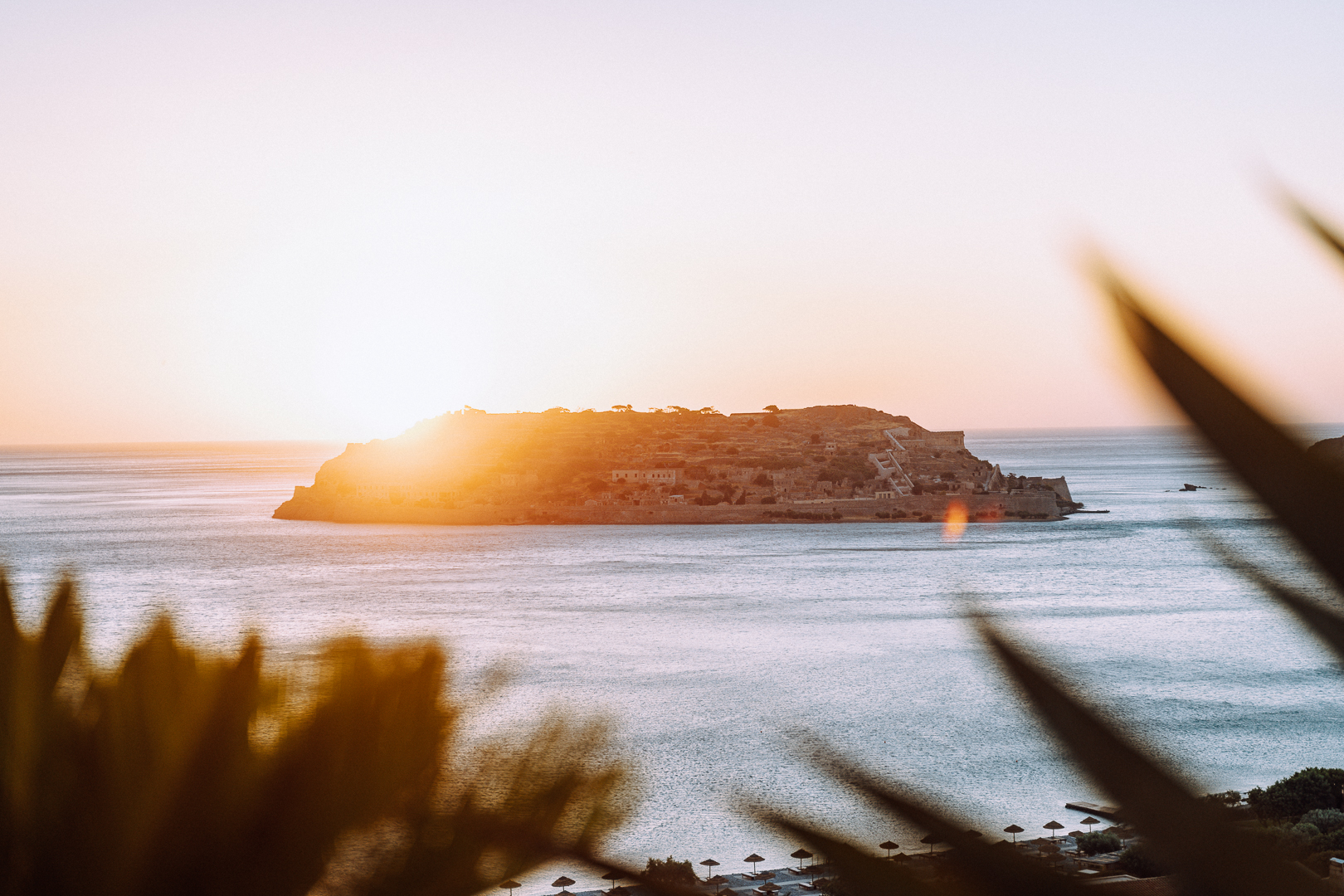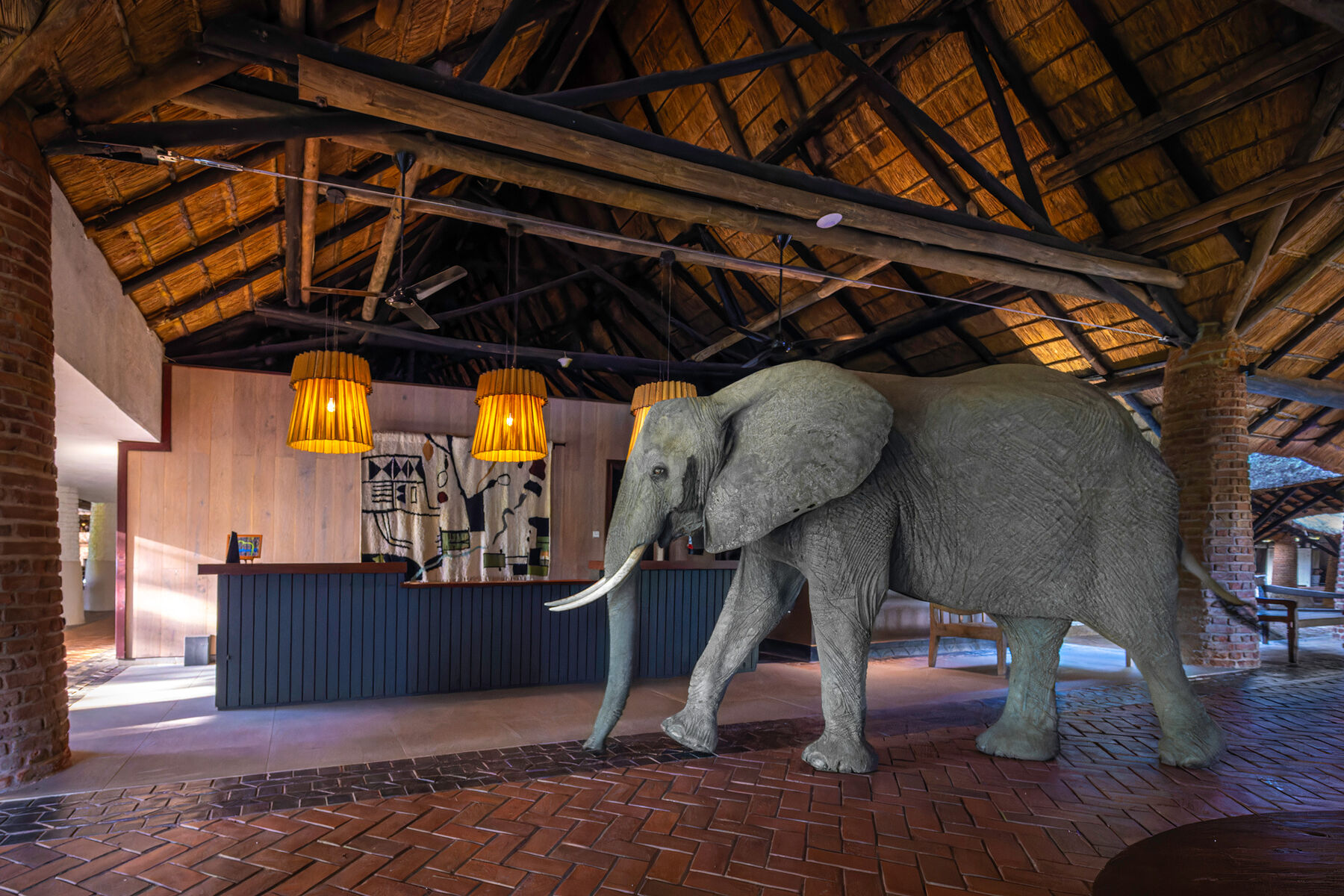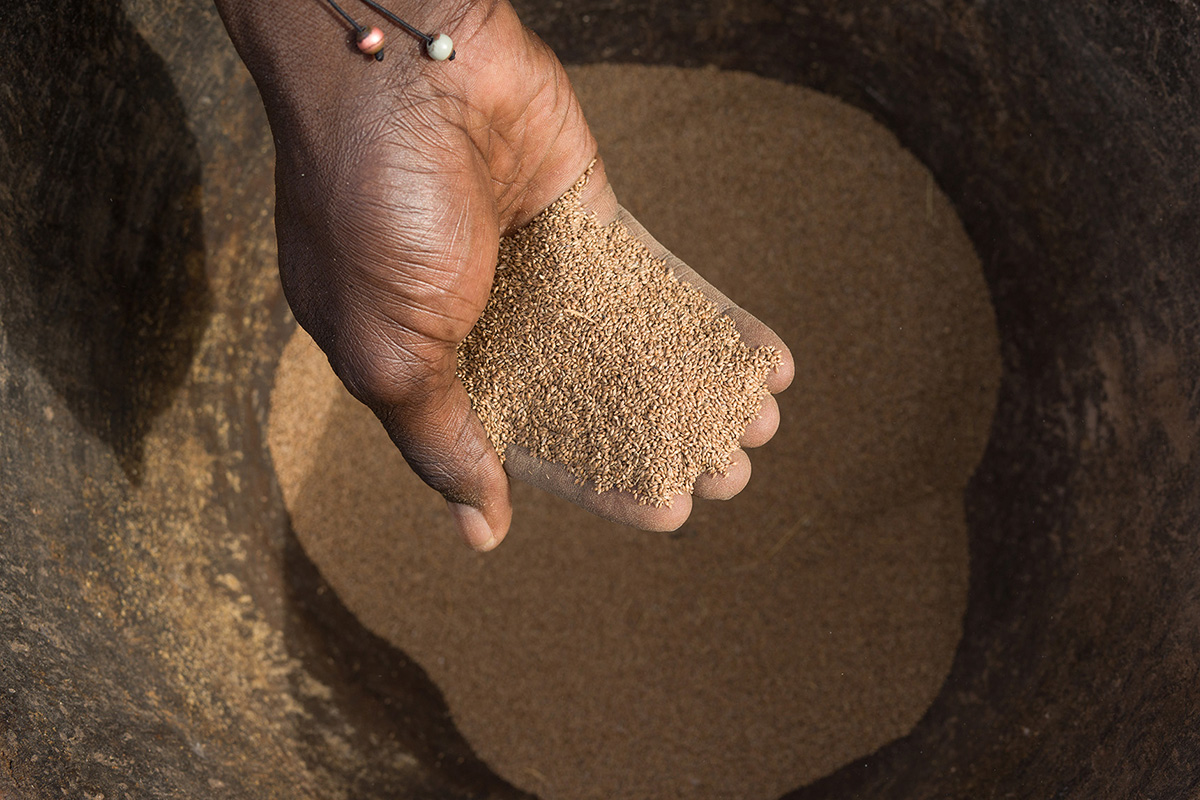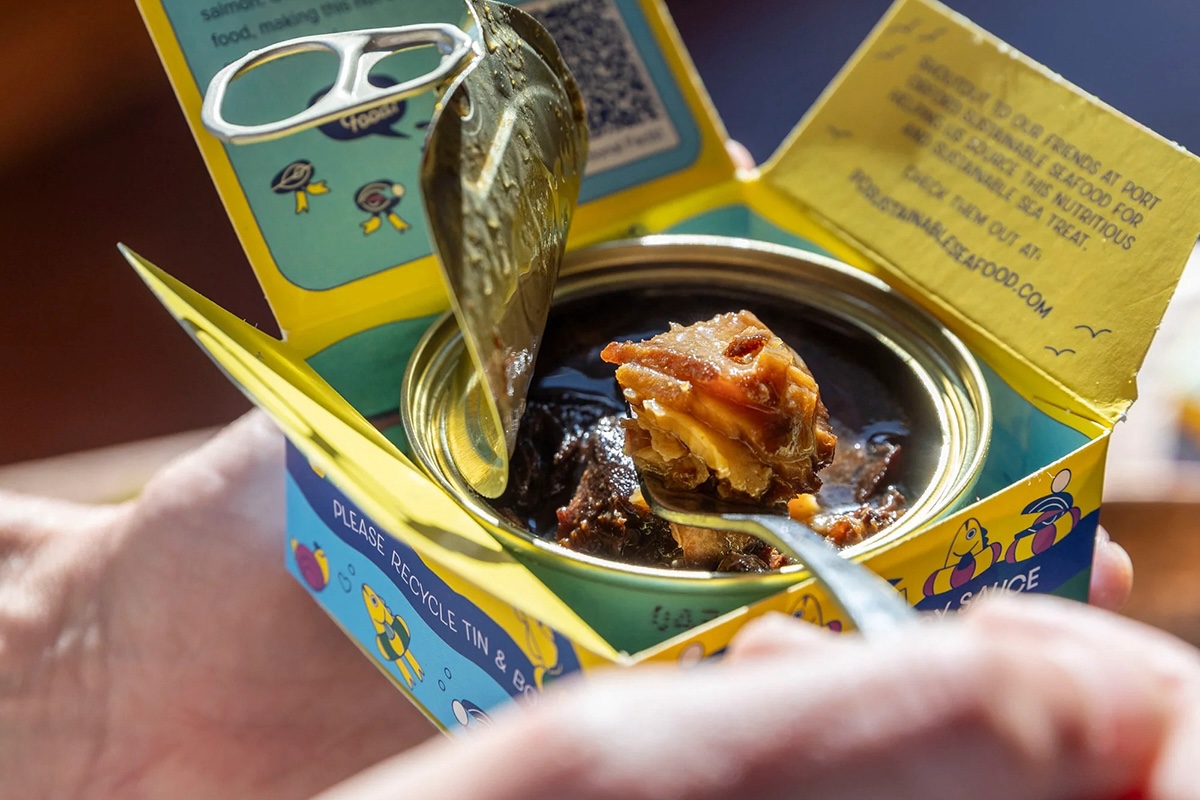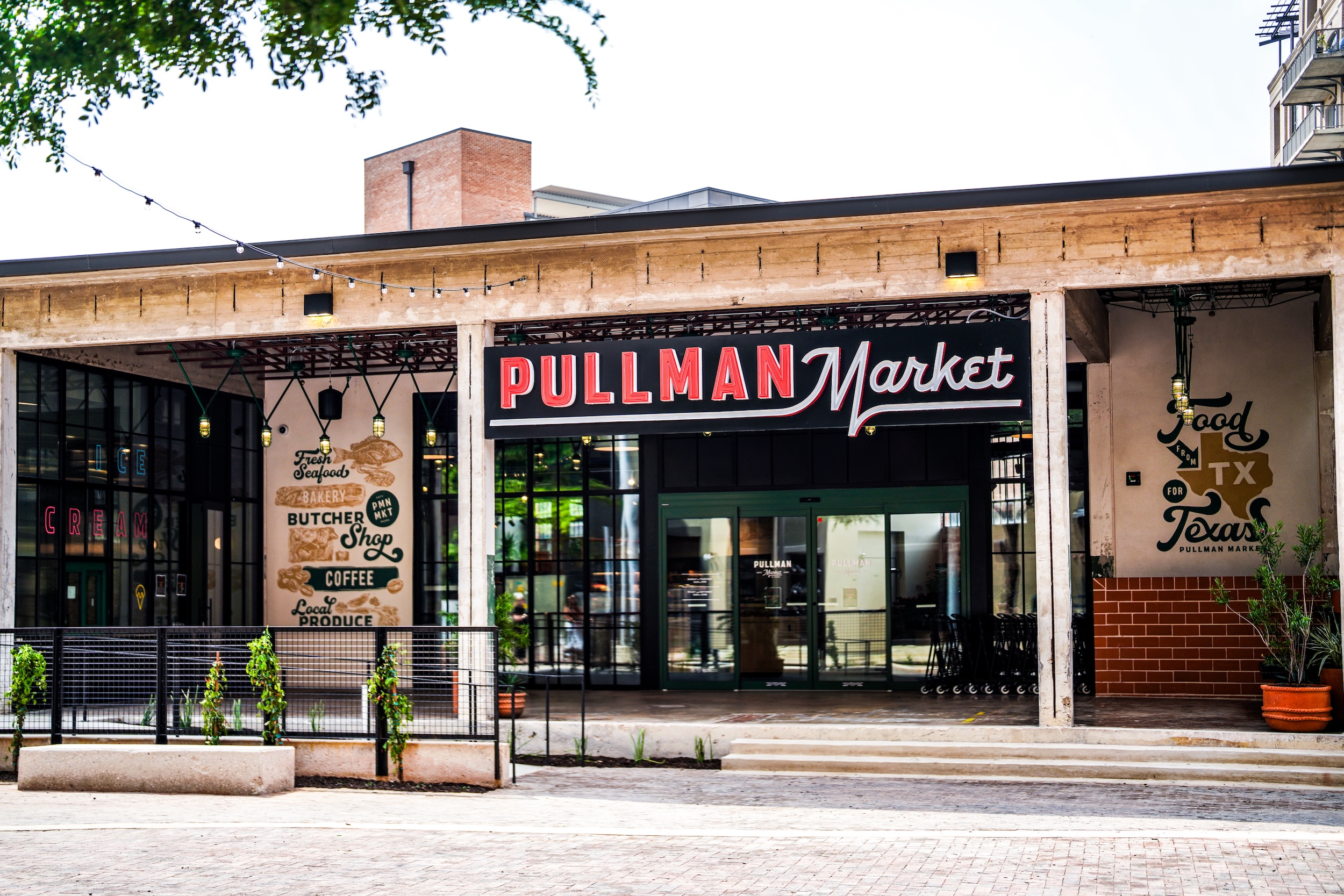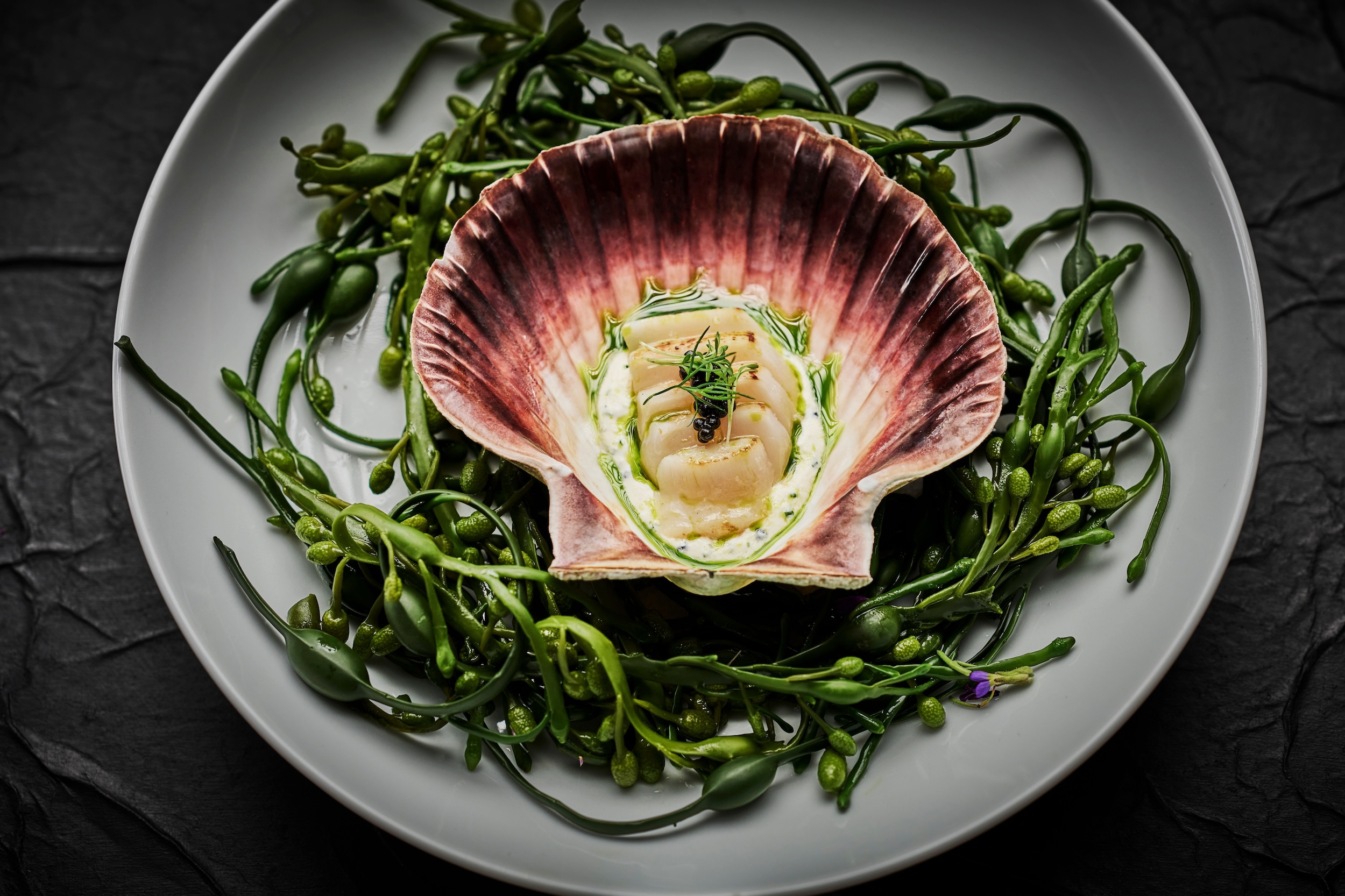NORTH STARS:
Community Support
Heritage Value
Production & Consumption
“On Crete, Phāea Resort Group weaves heritage agricultural practices with high-end experiences, preserving generational knowledge while introducing visitors to real life on the island.”
In the middle of the farm sits a makeshift kitchen and folding table under a tarp canopy. Stathis Savvidis’ father, son, and mother prepare a meal from the bounty surrounding them. Cheese from his sister’s farm, eggs gathered from the chickens that morning, rusks (a rustic bread), and sliced prickly pear populate the plates. Savvidis cuts some tomatoes with his one tool, a simple paring knife, and pours a glug of freshly-pressed olive oil over top. He adds a sprinkle of coarse salt and offers me a wedge. The sweet burst of flavor crushes anything from a grocery store.
Ochre-colored mounds filled with potatoes dot the field surrounding the dirt road to Savvidis’ family farm, the first in the Phāea initiative. In 2023, Crete’s Phāea Resort Group—Phāea Blue Palace, Cretan Malia Park, Village Heights Resort, Phāea Blue Villa, Phāea Traditional House, Koutouloufari Village, and Rosewood Blue Palace opening in 2025—introduced the Phāea Farmers Program. They provide support through collaborations with agronomists to train islanders in regenerative farming methods and sustainable land use. Savvidis, the executive chef at Cretan Malia Park, and his family always farmed on Crete, and now his son Thōmâs continues that legacy.
“On the farm, he follows me, whatever I do. He wants to be a chef one day and cultivate the land organically like me and his grandfather Thōmâs (his namesake) who also works the farm,” Savvidis said. “If I tell him to cut me a cucumber, he knows the plant. If I didn’t bring him, he wouldn’t have this knowledge.”
Currently, 6 employees, who are also small-scale farmers, cultivate land parcels in 12 local communities around Crete. Training programs include how to plant vegetables, how to monitor soil health and sustainable crop management, agriculture productivity, and pruning practices in selected olive groves and vineyards. Throughout the 23 farms, herbs, honey, fruits, olives/olive oil, seasonal vegetables, dairy products, and raki—a traditional, Cretan grape-based spirit—flourish. The resorts source their produce from the farms while providing employees with an additional revenue stream.
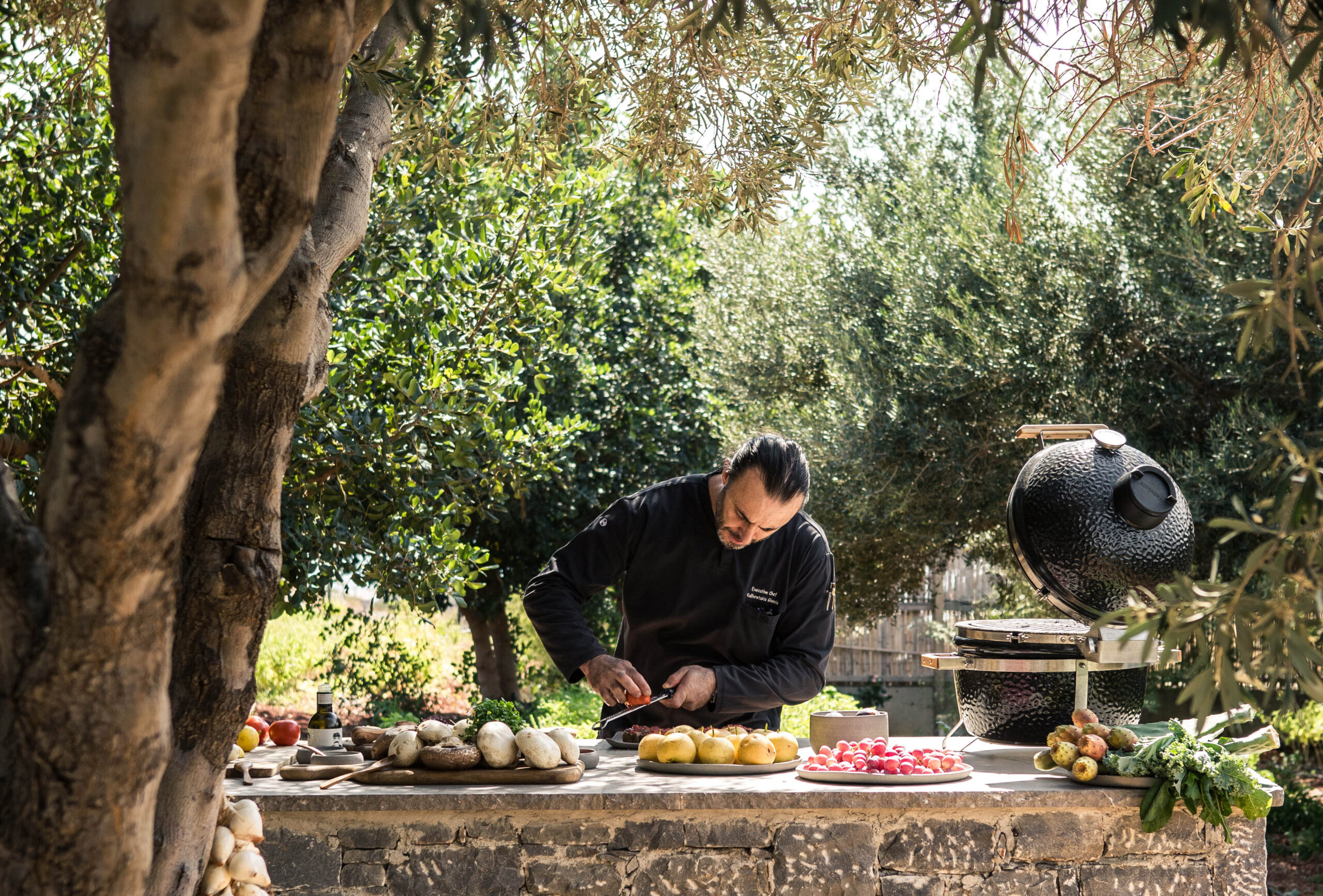
Cooking outside. Courtesy of Phāea Resort Group.
Guests at Cretan Malia Park and Phāea Blue Palace connect with the land they are visiting and the farmers working it through the Phāea Farmers’ Feast and Cretan Soul Cooking—programs where participants harvest vegetables from on-site organic gardens with the guidance of a Phāea farmer. Then they turn the bounty into a gourmet feast under the instruction of the executive chef while learning about and utilizing the ancient Minoan art of slow cooking, a time-heavy process not found in today’s fast-paced kitchens.
Bushes laden with green bananas and air thick with the scent of fresh basil envelop the impromptu dinner table. Georgia-Danai Antonaki, Sustainability Officer for Phāea Resorts, piles a rusk with cheese and olive oil as she explains that strengthening the connection between luxury hospitality and traditional Cretan agriculture drives this program. She added, “There is no greater luxury than the privilege to care for people on the planet.
Crete-raised Sbokou sisters, Agapi and Costantza, started working in their family’s hotels at 12 years old and witnessed the younger generation gravitating away from agriculture and leaving Crete for lives elsewhere. Fearing the generational loss of knowledge, they made a change in their business model when the hotels passed to them.
“We want to reinforce that sense of connection with the land so that people return to agriculture in a way that’s meaningful to them both financially but also as part of the community and in that way, keep the knowledge within our people,” Sbokou said.
In between bites, Antonaki adds, “Guests [at the resorts] asked to come to the land of Stathis because Stathis serves them. When he goes to the table, he says here are our cucumbers with tomatoes that are from my land. Then the guest wants to see where is the land of Stathis.”
Thōmâs Sr. prepares Greek coffee for the table. The strong flavor embodies the overwhelming hospitality layered into every moment on Crete. For Greeks, welcoming people into their homes for eating and drinking runs in their blood, taught to them as children. The Sbokou sisters’ vision of celebrating Crete’s heritage signals a new chapter in how people travel and experience the world.
“Nobody is left untouched, even those who have never farmed become attached to the quality of the produce, the stories of the farmers, and Crete’s deep cultural history,” Antonaki said.
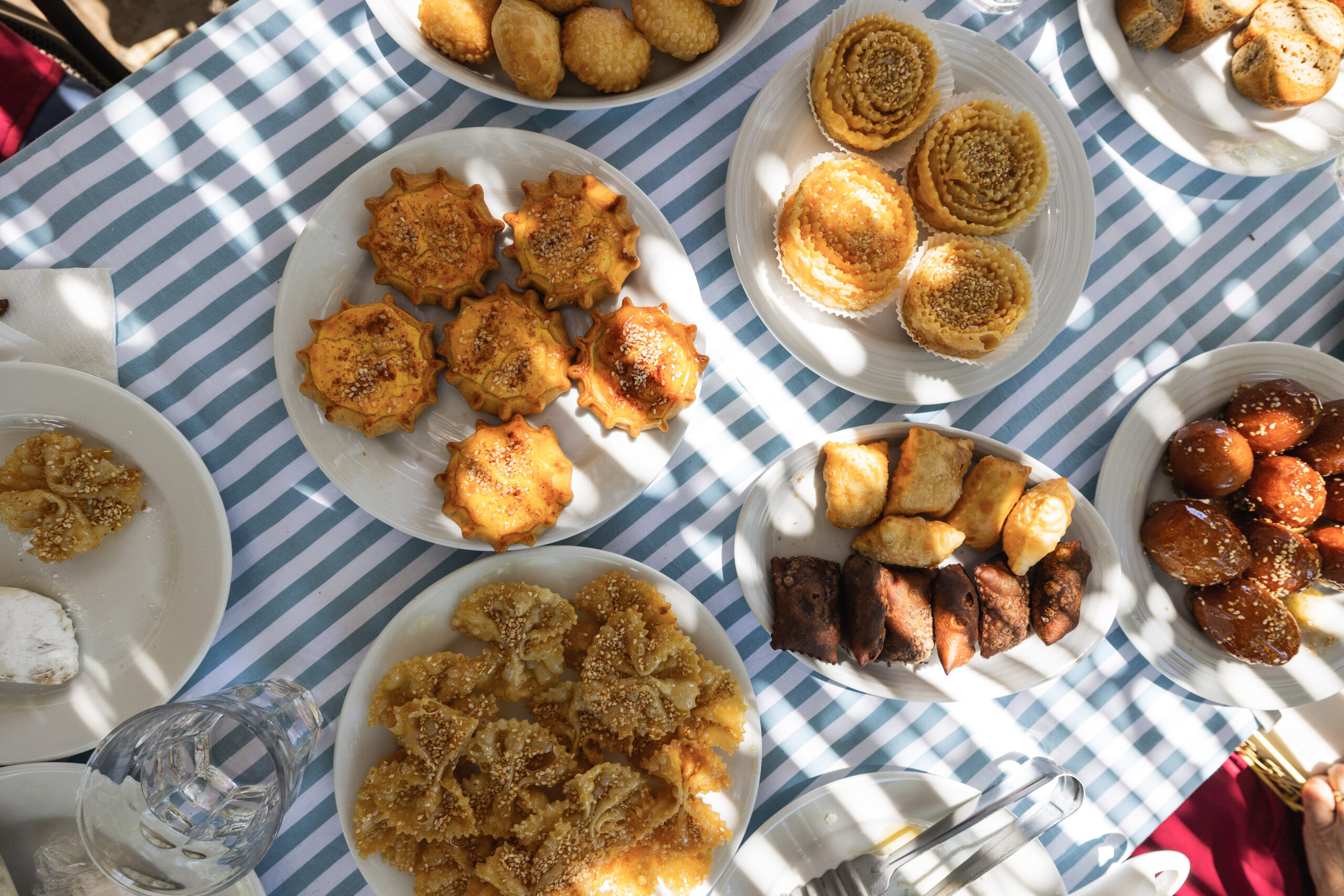
Beautiful and organic food. Phāea Resort Group.

Carrie Honaker is a Florida-based food and travel writer who is not sure where she will land next, but it will involve messy eating, a spicy Tempranillo, and finding the local farmers market. She has hauled oyster cages off the Forgotten Coast of Florida, harvested indigenous crops with the Abenaki Tribe in Vermont, learned to make beef patties from a Jamaican auntie, made Guavaberry Liqueur with a 7th generation distiller on St. Maarten, and stomped cacao pods in Grenada. Follow Carrie on IG @writeonhonaker.
North Stars: Community Support, Heritage Value, Production & Consumption


